Content Hub | EV/HEV Powertrain 2026
New Insights
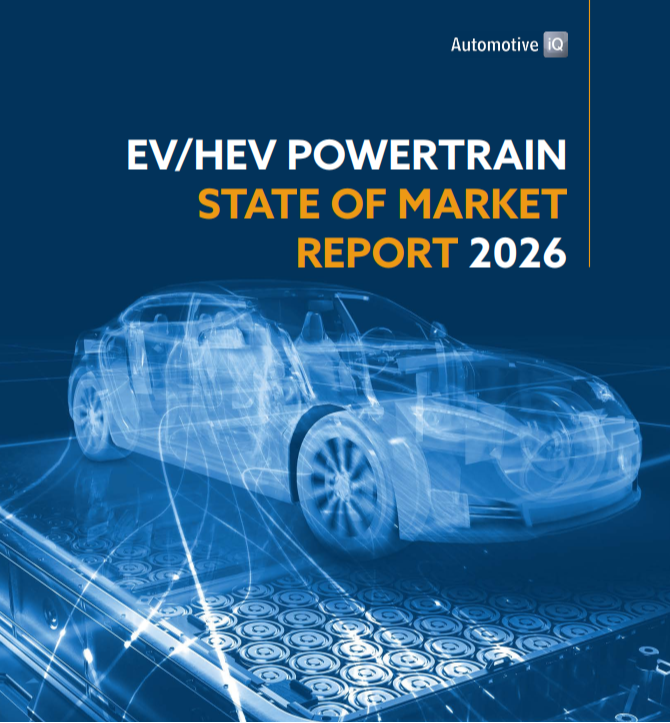
EV/HEV Powertrain State of the Market Report 2026
Discover the latest trends and developments in advanced e-motor technologies, thermal management and power electronics with our 2026 report.
This comprehensive overview explores:
- The integration of e-motor technologies, thermal management and power electronics
- What factors do OEM & Tier-1 companies need to focus on to manage cost pressures, increase competitiveness and maximise efficiency?
- How to de-risk your supply chain
- The latest update on PFAS regulation
- And more
All these topics will be explored in depth at EV/HEV Powertrain 2026 on the 24th - 26th February 2026 in Berlin, Germany.
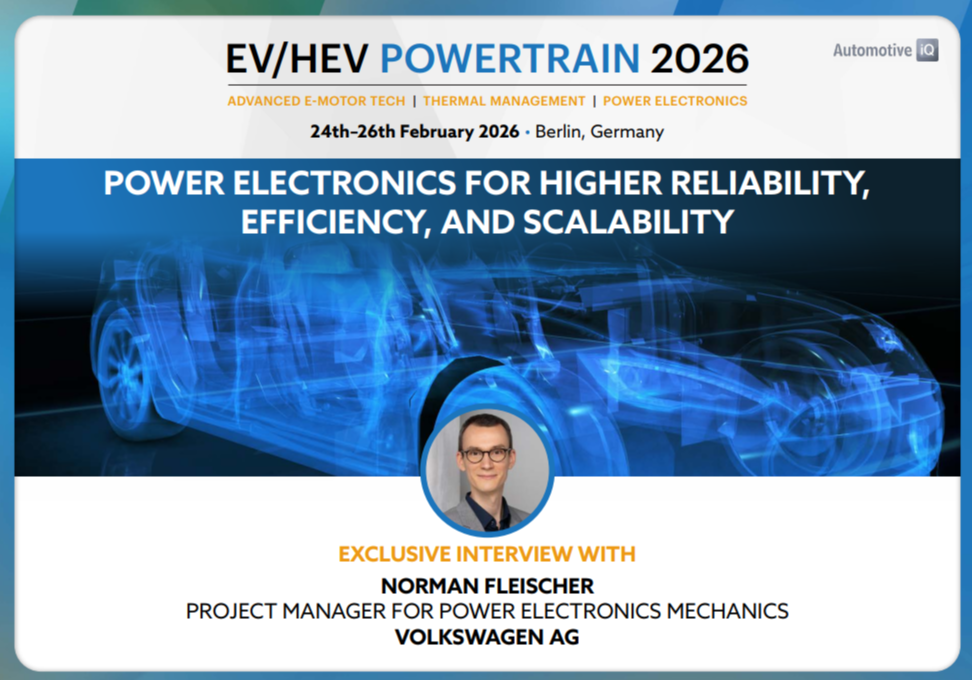
Power Electronics for Higher Reliability, Efficiency, and Scalability
Ahead of EV/HEV Powertrain 2026 event, Automotive IQ interviews Norman Fleischer, Project Manager for Power Electronics Mechanics at Volkswagen AG, to discuss power electronics for higher reliability, efficiency, and scalability. Norman shares the key considerations when combining different power systems and shares best practices that have proven particularly effective. He highlights the improvements achieved through integrating different power systems and explains how these have influenced overall reliability, efficiency, and performance. He also discusses the environmental and operating conditions that are optimal for the performance of power electronics systems.
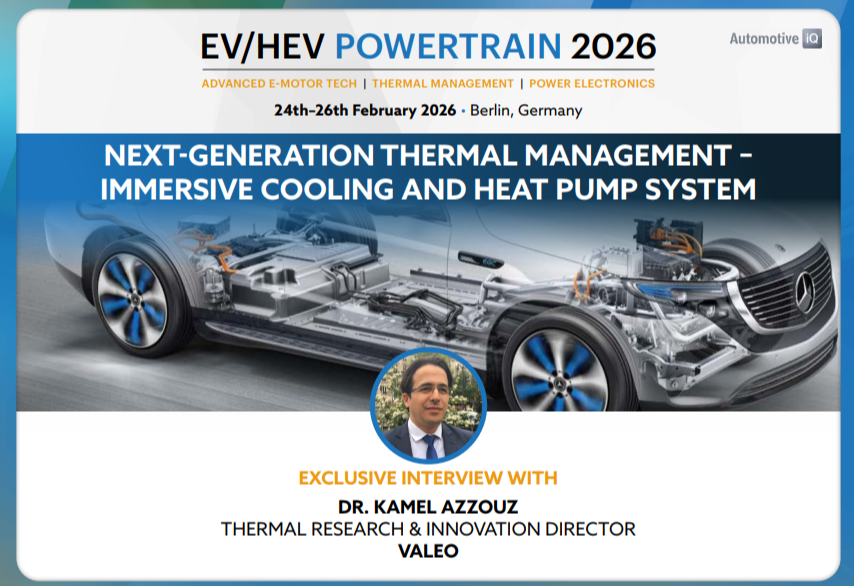
Next-Generation Thermal Management - Immersive Cooling and Heat Pump Systems
Dr. Kamel Azzouz, Thermal Research & Innovation Director at Valeo, shares insights into next-generation thermal management.
In this interview, Kamel discusses the current state of real-world adoption of immersive cooling and highlights the biggest challenges in scaling immersive cooling systems, particularly in relation to system design, safety, cost, and maintenance. He also explains how heat pump systems can be made more environmentally friendly. Kamel further explores how to balance the three key pillars when developing next-generation heat pump systems: safety, performance, and sustainability.

How to De-Risk Your Supply Chain
This article explores new technologies and strategic investments that reduce supply chain risks, alternative global supply chain routes across Europe, South Asia, North America, and South America, and the supply of permanent magnets outside China. It also examines tariff challenges for e-motor technologies and their direct impact on costs and sourcing.
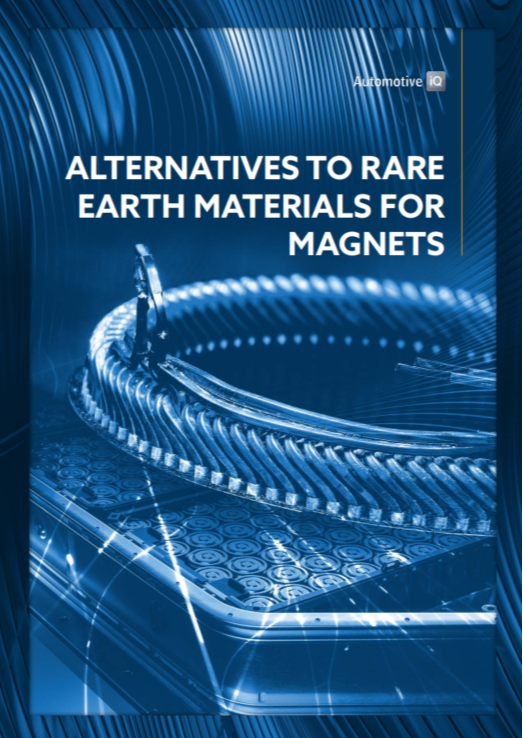
Alternatives to Rare Earth Materials for Magnets
Understand the trade-offs between magnet-free motors and traditional permanent magnet (PM) machines, including performance and efficiency differences during technology evaluation, and examine how Tier-1 manufacturers are designing higher-efficiency e-motors while reducing rare-earth content.
"EESM is a solid option when magnet costs or tariffs account for a significant portion of the total cost of ownership. It's also the design that many European OEMs are adopting as they move rapidly towards rare-earth-free motors in the coming years."
This topic will be explored in-depth at EV/HEV Powertrain 2026.
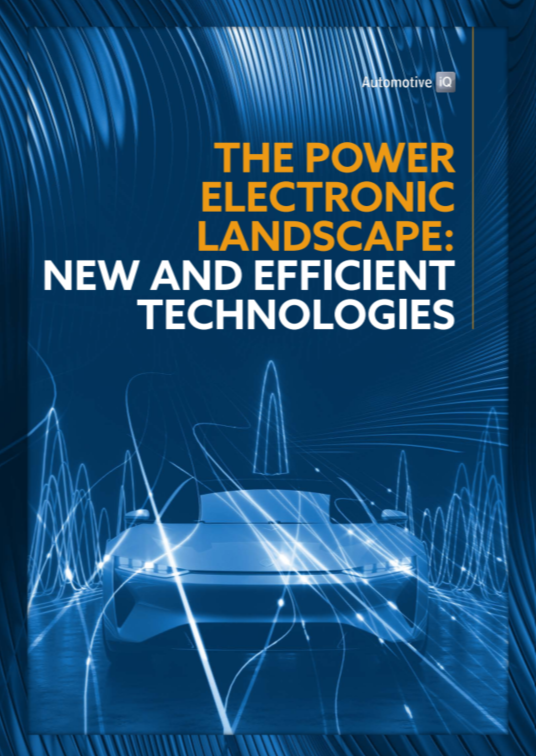
The Power Electronic Landscape: New and Efficiency Technologies
Looking ahead to 2026 and beyond, three major shifts are set to reshape the power electronics landscape.
1) Wide-bandgap (Sic)
2) Three-level topologies
3) GaN applications
Explore in-depth what these developments mean for the industry, and learn OEMs best practices for optimising power electronics efficiency and cost.
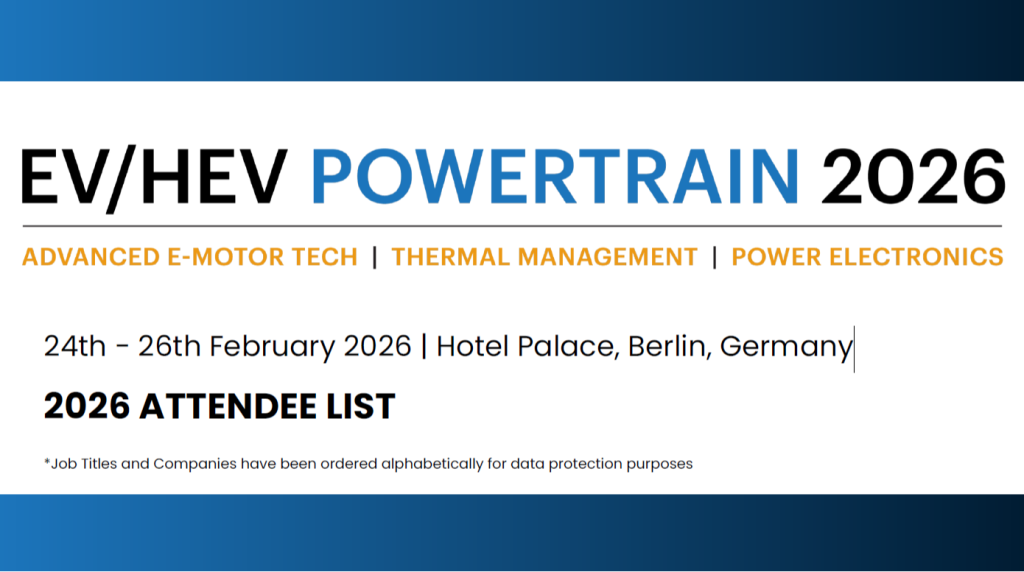
2026 Early Attendee Snapshot | EV/HEV Powertrain
Download the early attendee snapshot for EV/HEV Powertrain and preview who will be in the room from the 24th - 26th February 2026 at the Hotel Palace, Berlin, Germany.
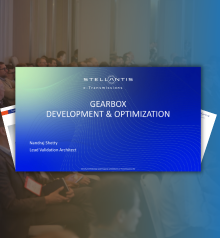
Gearbox Development & Optimisation | Past Presentation by Nandraj Shetty, Lead Validation Architect, Stellantis
Download this exclusive presentation from Automotive IQ's EV & Thermal Management 2025 event and gain expert insights from Nandraj Shetty, Lead Validation Architect at Stellantis. Discover the critical role of the eGearbox in hybrid powertrains, key optimisation strategies for hybrid gearboxes, and upcoming advancements shaping the future of hybrid transmission systems.
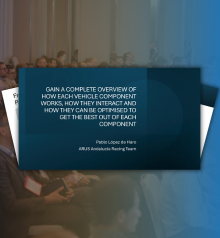
Getting the Best Out of Each Component | Past Presentation by Pablo López de Haro, Head of Electric Powertrain, ARUS Andalucía Racing Team
Download this exclusive presentation from Automotive IQ's EV & Thermal Management 2025 event and gain expert insights from Pablo López de Haro, Head of Electric Powertrain, ARUS Andalucía Racing Team. Discover a detailed overview of how each vehicle component works, understand how they interact, and discover strategies to optimise performance.
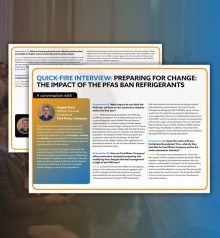
Preparing for Change: The Impact of PFAS Ban Refrigerants | Interview with Angelo Patti, Vehicle Thermal Systems, Ford Motor Company
In this quick-fire interview, Angelo Patti, Vehicle Thermal Systems at Ford Motor Company, explores the potential impact of the PFAS ban and how Ford Motor Company and other OEMs are preparing and modifying their designs/thermal management in light of the ban, while collaborating with regulators, suppliers, and academia to find practical solutions. Angelo also discusses the challenges the industry may encounter and highlights the importance of adaptable system designs to comply with future regulations.
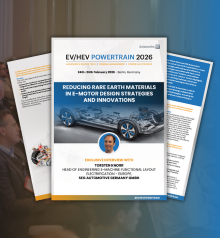
Reducing Rare Earth Materials in E-Motor Design | Exclusive Interview SEG Automotive
Automotive IQ interviews Torsten Knorr, Senior Manager Electromagnetic and Thermal Layout and NVH of E-Machines at SEG Automotive, to discuss strategies to reduce rare earth material use in e-motor designs while preserving performance and efficiency.
Torsten shares how SEG Automotive is balancing cost-efficiency, performance, and efficiency through the use of innovative cooling systems, optimisation techniques, and cutting-edge simulations. Torsten addresses the challenges of minimising rare earth elements while maintaining motor performance and emphasises the significance of new technologies in achieving these goals, offering valuable insights for the future of sustainable e-motor development.
Interview highlights include:
- Effective methods for reducing rare earth materials while maintaining performance and efficiency
- Key technologies enabling the shift away from rare earth materials in e-motor design
- Challenges and solutions to reduce rare earth materials

Advanced E-Motor Technologies & Thermal Management for EV/HEV 2025 Attendee List
Download the Advanced E-Motor Technologies & Thermal Management for EV/HEV 2025 Attendee List.
From the Archives

Thermal Management - Comparison of Different Types & Uses of New Refrigerants: Interview with Rebecca Bellchambers at S&P Global Mobility
The automotive industry is widely aware of changing laws regarding refrigerants in Europe, and the potential full ban of existing refrigerants in 2028. With this in mind, the most important factors companies are considering when it comes to new refrigerants is efficiency, cost, and availability in the region and its components. Industry professionals in the thermal management space are now comparing different types and uses of new refrigerants, taking into account what is currently being developed by chemical companies, what suppliers are testing, and how the shift from the existing refrigerant to a carbon dioxide one will affect the system re-design.
Automotive IQ spoke with Rebecca Bellchambers, Thermal Research Analyst at S&P Global Mobility to get an understanding of these concepts and concerns.

Achieving the Perfect Harmony Between Passenger Comfort and Vehicle Range in EVs: Interview with Alessandro Riccio at Iveco Group
Passengers want to feel comfortable within their vehicle and for the vehicle to be cool enough when the ambient temperature is hot and vice versa. These elements have implications on how OEMs condition the battery, and this can affect range in a positive or a negative way, often more negative more than positive. Finding this sweet spot in terms of thermal management as the industry is constrained by range has never been more important. With this in mind, Automotive IQ interviewed Alessandro Riccio, Energy and Thermal Performance Engineer at Iveco Group to find out how OEMs can achieve the sweet spot between passenger comfort and range, as well as ways to manage, cool and heat all the high-voltage and low-voltage components within the car depending on what the ambient temperature is.
Interview topic discussions:
• Balancing Passenger Comfort and Vehicle Range
• Industry Trends
• Battery Conditioning Impact
• Challenges in Thermal Management
• Positive and Negative Impacts
• Different Approaches by OEMs
• Comprehensive Temperature Management
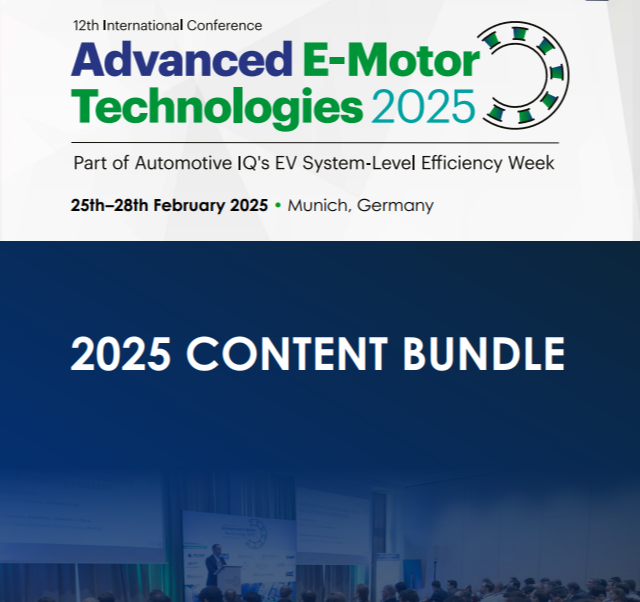
Advanced E-Motor Technologies: Content Bundle 2025
The Automotive IQ team has compiled some of our most popular e-motor content for you to enjoy. Featuring:
- Integrating the Power Electronics, E-Motor and Gearbox to Simplify the System | Interview with Dr. Vineetha Ravindran at Scania Group
- Practical Strategies to Reduce Dependency on Rare Earth Materials | Interview with Dr. João Bonifácio at ZF Group
- Taking a System-Level Approach to E-Motor Efficiency Optimisation | Interview with Dr. Fabio Dohr at ZF Group
- Alternative Materials and Magnets to Replace Rare Earth Materials in E-Motor Design | Interview with Krishna MPK Namburi at Nexteer Automotive
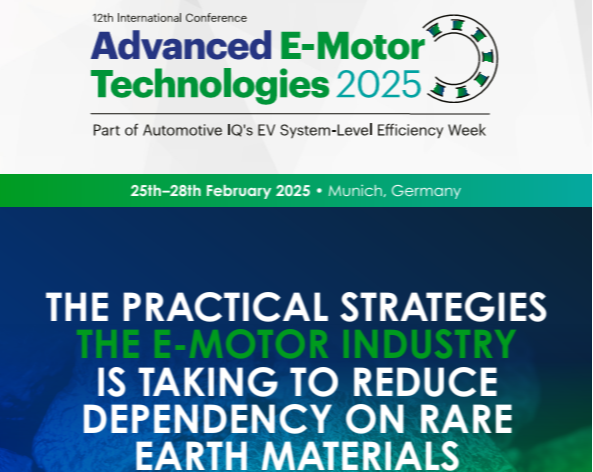
Practical Strategies the E-Motor Industry is Taking to Reduce Dependency on Rare Earth Materials
This report highlights the motives behind reducing dependency and the key considerations for alternative materials and magnets to Rare Earth Materials. Gain an understanding of what the leading OEM's and Tier 1's are doing and learn exclusive insights from Krishna MPK Namburi, System Controls Engineering Manager at Nexteer Automotive, Dr. João Bonifácio, Head of System Design, Systems Engineering Electronics and Software - Electrified Powertrain Technology and Dominic Bezikofer, Head of E-Motors & Components NA, Author & Initiatorat at ZF Group.

Thermal Management for EV/HEV - Content Bundle 2025
The Auto IQ Team have compiled our most popular and widely read content this year into an exclusive resource bundle, including:
- DC Fast Charging and its Impact on Thermal Management | Interview with Sowmya Jayaraman at General Motors
- Thermal Management - Comparison of Different Types & Uses of New Refrigerants: Interview with Rebecca Bellchambers at S&P Global Mobility
- Thermal Management is Vital to the Safe, Efficient, and Reliable Operation of EVs
Fill in your details below to download the 2025 content bundle.

The State of the Thermal Management Market Report 2024
In this report, we analyse data collected and provide a clear overview of the current opportunities, challenges, and potential solutions within the thermal management sector throughout 2024. It will examine key trends and market dynamics, highlighting areas of growth and innovation, while also addressing ongoing issues and priorities.



